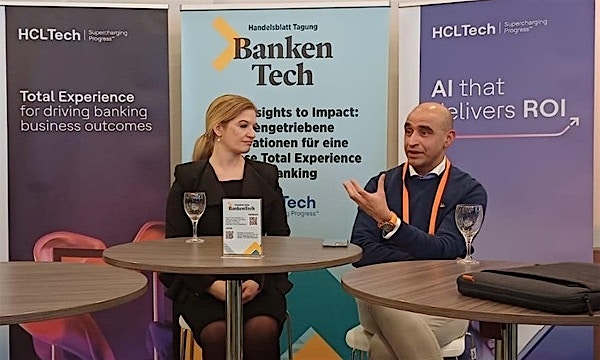In recent years, the financial landscape has undergone a remarkable transformation. At the heart of this shift is the growing collaboration between traditional banks and fintech companies. Once seen as competitors, banks and fintech firms are increasingly joining forces to deliver innovative financial solutions. But behind these partnerships, there's a key player that often gets overlooked — IT services companies.
IT services providers play a crucial role in making bank-fintech partnerships work smoothly. Their expertise in areas such as cybersecurity, cloud computing, infrastructure management and data analytics ensures fintech’s have the technical backbone to thrive.
Why banks and fintechs are joining forces
The answer to this collaboration lies in the strengths and limitations of both parties. Traditional banks bring security, vast capital and decades of regulatory expertise, but they often struggle to innovate quickly due to outdated systems. On the other hand, fintech’s are agile, tech-driven and ready to disrupt the financial sector, but they sometimes lack the resources and regulatory knowledge to grow.
Together, these partnerships create a win-win scenario: fintech’s gain access to the banks’ infrastructure and customer base, while banks tap into fintech innovation to stay relevant in an increasingly digital world. However, with innovation comes complexity, and that’s where IT services companies come into play.
The role of IT services companies in supporting fintech growth
As fintech’s partner with banks and scale their operations, they face several technical challenges that IT services companies are perfectly positioned to solve. Here are some key areas where IT service providers make a significant impact:
1. Cybersecurity and compliance
Fintech companies handle vast amounts of sensitive data, from personal information to financial transactions, making them prime targets for cyberattacks. Ensuring top-notch security is essential — not only for protecting customer data but also for complying with stringent financial regulations like GDPR, PCI DSS and AML laws.
How IT services help:
IT services companies specialize in cybersecurity solutions that protect fintech platforms from threats such as data breaches, fraud and identity theft. These firms can implement advanced encryption methods, secure payment gateways and multi-factor authentication systems to ensure fintech's operate securely and meet regulatory standards. IT experts also stay up-to-date on evolving compliance requirements, helping fintech's avoid costly fines and reputational damage.
2. Cloud infrastructure and scalability
How IT services help:
IT services companies provide cloud solutions that allow fintech’s to scale efficiently. By leveraging platforms like Amazon Web Services (AWS), Microsoft Azure or Google Cloud, IT providers ensure fintech’s can grow without worrying about the technical complexities of infrastructure. They also offer managed services, handling everything from server maintenance to disaster recovery, so fintech’s can focus on what they do best — innovating.
3. Data analytics and AI integration
Data is the backbone of any fintech company. Fintech’s collect massive amounts of data, from user behavior to transaction histories, and analyzing this data allows them to deliver personalized services and create innovative products like robo-advisors, automated loan underwriting or predictive financial planning.
How IT services help:
IT services companies specialize in data analytics and AI integration, helping fintech’s harness the full power of their data. Through advanced analytics, machine learning and AI tools, IT providers can help fintech’s identify customer trends, optimize product offerings and even predict financial risks. For example, using AI-driven fraud detection systems can significantly reduce the chances of fraudulent transactions, enhancing the security of the fintech platform.
4. API development and integration
The fintech industry is heavily reliant on application programming interfaces (APIs) to connect different systems and services seamlessly. For example, APIs enable fintech’s to integrate with banks, payment processors or third-party apps, allowing for services like mobile payments, account aggregation and open banking.
How IT services help:
IT services companies excel at API development and management, ensuring that fintech’s can easily integrate with other financial institutions and partners. These providers help develop secure, scalable APIs that enable fintech’s to deliver more features to their customers, faster. By managing the entire API lifecycle, IT services companies make sure that fintech’s remain flexible and capable of adapting to new market demands.
5. User Experience (UX) design and development
One of the hallmarks of fintech success is the smooth, user-friendly digital experience that customers have come to expect. Whether it's a mobile banking app or an investment platform, fintech’s need to create interfaces that are not only functional but also intuitive and engaging.
How IT services help:
IT services companies often have teams of UX/UI designers who specialize in creating seamless, customer-centric digital experiences. By focusing on user behaviour, IT providers can help fintech’s optimize their apps and platforms to enhance usability, increase engagement, and reduce customer churn. Their design expertise ensures that fintech products remain competitive in a market where user experience can make or break a company.
6. Blockchain and Distributed Ledger Technology (DLT)
Blockchain technology is revolutionizing the financial industry, and fintech’s are at the forefront of this transformation. Blockchain offers a decentralized and transparent way to record transactions, making it ideal for financial services like payments, smart contracts, and cross-border transfers.
How IT services help:
Many IT services companies have deep expertise in blockchain development and can help fintech’s build, deploy, and manage blockchain-based applications. Whether it's creating a new cryptocurrency platform or implementing blockchain for secure record-keeping, IT providers ensure that fintech’s can leverage this technology to offer innovative and secure financial products.
A collaborative future
The future of bank-fintech partnerships looks promising, with both sectors combining their strengths to drive innovation, improve customer experiences and enhance operational efficiency. As technology continues to evolve, these collaborations will deepen, fuelled by IT services companies that provide the necessary infrastructure, security, and scalability. This synergy will help create more agile customer-centric solutions ensuring regulatory compliance and data security.






